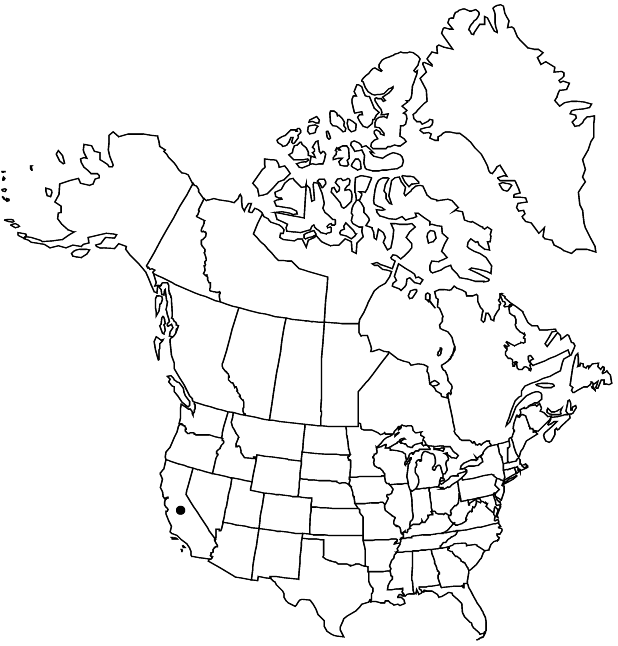Arctostaphylos refugioensis
Four Seasons 2(2): 13, fig. p. 13. 1967 ,.
Shrubs, erect, 2–4 m; burl absent; twigs densely short-hairy with longer, gland-tipped hairs. Leaves: petiole to 2 mm; blade glaucous, dull, ovate to oblong-ovate, 3–4.5 × 2–3 cm, base distinctly lobed, auriculate-clasping, margins entire, plane, surfaces smooth, glabrous or midrib ± finely hairy. Inflorescences panicles, 5–10-branched; immature inflorescence pendent, branches spreading (open, loose, with overlapping bracts), axis 2–3 cm, 1+ mm diam., densely short-hairy with longer, gland-tipped hairs; bracts not appressed, leaflike, ovate to wide-elliptic, 4–10 mm, apex acute, surfaces finely glandular-hairy. Pedicels 7–9 mm, finely glandular-hairy. Flowers: corolla white, conic to urceolate; ovary glabrous. Fruits globose, 10–15 mm diam., glabrous. Stones connate into single sphere. 2n = 26.
Phenology: Flowering winter–early spring.
Habitat: Chaparral
Elevation: 400-600 m
Discussion
Of conservation concern.
Arctostaphylos refugioensis is known from one population in Refugio Canyon in Santa Barbara County.
Selected References
None.
